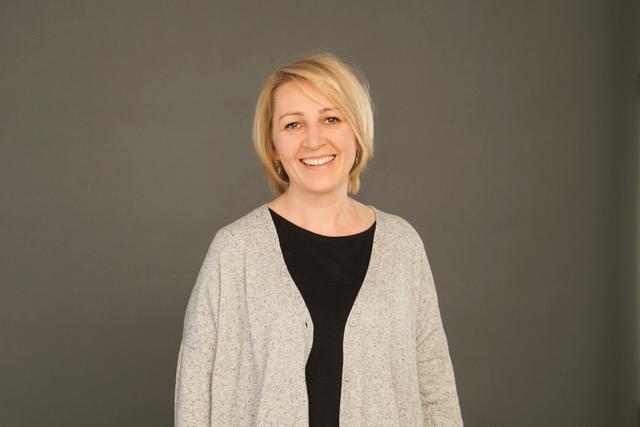When she was growing up, Katarzyna Laziuk knew little about the Jewish history of Mińsk Mazowiecki, the small Polish city east of Warsaw. But as a teacher, Kasia, as everyone calls her, has been in the forefront of documenting and presenting the city’s Jewish heritage. And to educate about the Holocaust, which brought to an end 400 years of Jewish life in her home town.
Once she began this mission some 11 years ago, it became a special journey for Kasia. Today, Kasia is the TOLI Program Coordinator in Poland.
Before World War II, thousands of Jews lived in Mińsk Mazowiecki (not to be confused with Minsk, once a major center of Jewish life and today the capital of Belarus). Most of them were killed when the Nazis liquidated the Mińsk ghetto on July 21, 1942 and sent 5000 Jews by train to the Treblinka extermination camp. There, about 1300 were shot in the streets of Mińsk Mazowiecki, while most of the others died in the death camp. Another 650 of Mińsk’s remaining Jews were killed in 1943. Only one Jewish family remains in the city.
For much of the 22 years she was a local high-school teacher, Kasia wasn’t really aware of that history. But 11 years ago, Kasia’s school hosted over 100 Israeli students. To prepare for the visit, she began researching Jewish history and Judaism. Since then, she has been active in teaching the Holocaust and preserving the memory of Jews from her hometown. Every year, she organizes a commemoration on the anniversary of the destruction of the Jewish ghetto, a moving event bringing students and the public together.
“I don’t think we can talk about the history of Mińsk Mazowiecki without discussing the history of the Jewish people, because they were our neighbors for 100 years before the Holocaust,” she said. “But I realized that it was not enough to portray Jews only in terms of the Holocaust. Now I also focus on culture. Ever year is a different theme, and last year was philosophy, so I invited the daughter of a famous Jewish scholar to attend.”
Before TOLI, she had already attended Shoah-related seminars sponsored by the US Holocaust Memorial Museum in Washington and the Jewish Foundation for the Righteous in New York.
“I was on various mailing lists, and one day I got a newsletter from Echoes & Reflections about a TOLI seminar in Poland, so I decided to attend,” she said. “It was different from the other Holocaust programs I had done in the US. The focus was on us, the teachers, and our feelings.”
She added. “TOLI invests in teachers and empowers us to use writing as a powerful means to connect and reflect on the Holocaust. I thought I wouldn’t be able to write anything, but it turned out that I could.”
In 2017, Kasia attended the TOLI national seminar in New York. It was, she says, “a life-changing experience”
Since 2018, Kasia has been TOLI’S coordinator in Poland. TOLI has held three annual seminars in Poland, including this year’s program that was held virtually because of the pandemic. The seminars are held in cooperation with POLIN, Poland’s Museum of the History of Polish Jews. In this capacity, Kasia works with Oana Nestian-Sandu, TOLI Director of International Programs, to recruit teachers and develop the program. The TOLI teacher network in Poland has grown to over 100 educators.
“We are designing a lesson now on eyewitnesses to the Holocaust for Polish students. The idea is to stop and look back what’s happened in the last 25 years and how it has influenced education,” she said. “The focus is not only on Holocaust education, but human rights. I know from the forms that teachers have filled out after the last seminar that they appreciate the wider scope.”
Kasia is heartened by the response to the TOLI programs in Poland. “Every year when I go through the recruitment process and read all the applications, I feel proud and motivated to the job. The number of teachers interested in our seminar is amazing,” she says. There are many more who would like to attend.
What does she see as the challenge ahead?
“There is a need to educate, to learn, and find new ways of teaching the Holocaust. In the era of the growth of antisemitism, racism, and anti the other, we give teachers tools and support. We empower them to continue their work for the better future. “

